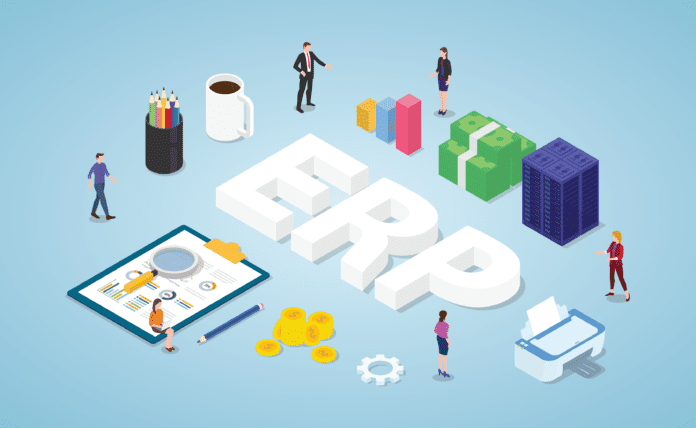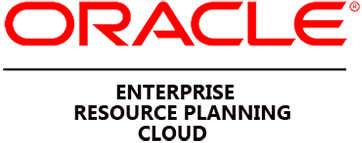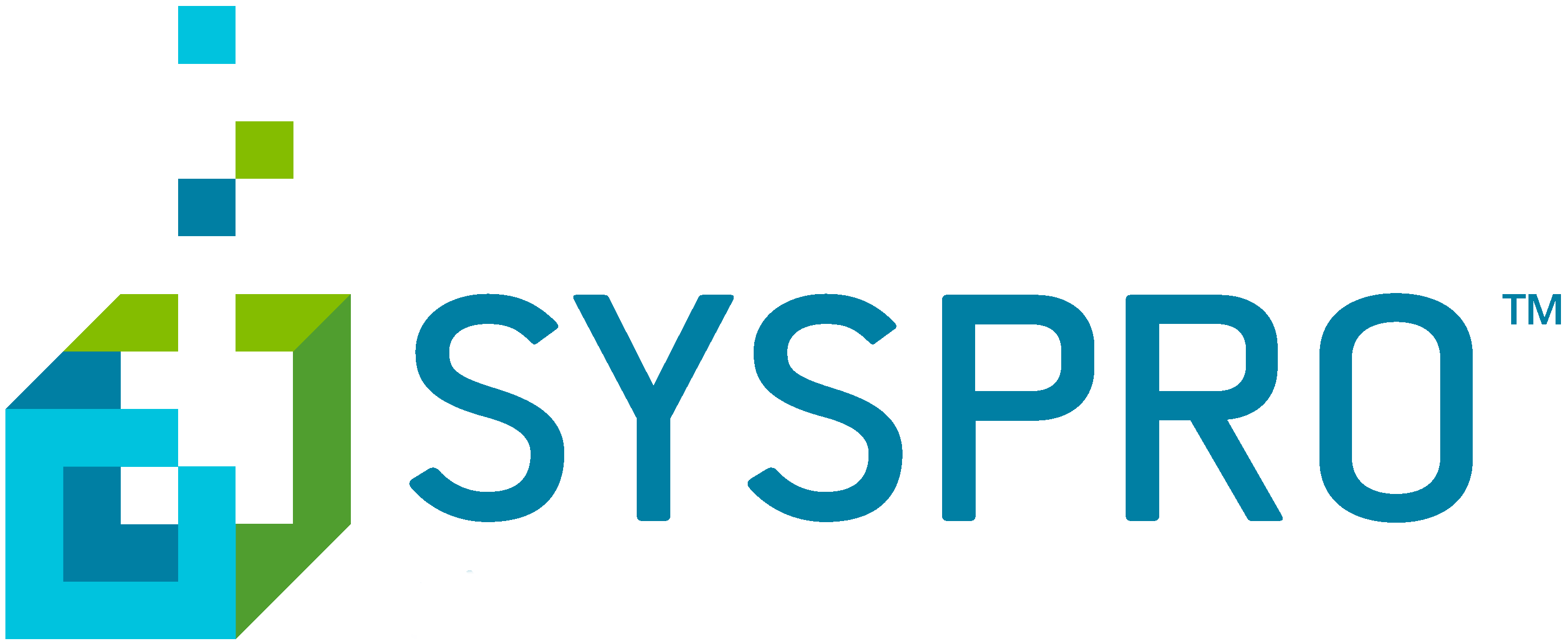Best ERP Systems for 2022: Compare Top Vendors

Enterprise resource planning (ERP) systems have long been the backbone of the large enterprise. Back in the nineties, it was common to hear horror stories of years-long implementations, lawsuits, and a general lack of results.
Nevertheless, the enterprise resource planning implementation process began to simplify over time. In particular, cloud computing made ERP systems more accessible to small and midsize enterprises. Today, the best ERP software and systems are central to the enterprise application space.
Table of Contents
Top ERP Systems
CIO Insight considered many different ERP systems. Given that, here are our top picks in no particular order.
SAP S/4HANA
Value Proposition:
SAP S/4HANA Cloud is an ERP system with built-in intelligence, including AI, machine learning, and advanced analytics. Its aim is to help transform business processes with intelligent automation built for the cloud. Above all, this ERP system runs on SAP HANA. Its in-memory database offers real-time processing speeds and a simplified data model.
Key Differentiators:
- The big one is HANA, which SAP has been working on for more than a decade
- ERP solutions tailored to many different vertical markets and industries, including best practices and customized functions
- Available in public/private cloud, hybrid, and on-premise deployments
- Embedded AI, analytics, and intelligent process automation
- Consumer-grade user interface
- Processes that support monetizing subscription-based business models
- Universal parallel accounting allows companies to prepare and present financial statements according to different sets of accounting standards
- Bot environment technology services with SAP Intelligent Robotic Process Automation 2.0
Oracle Fusion Cloud Enterprise Resource Planning
Value Proposition:

Oracle Fusion Cloud Enterprise Resource Planning offers a set of enterprise finance and operations capabilities. Further, Oracle is directed towards touchless operations, continuous forecasting, and an enhanced user experience. Machine learning and artificial intelligence investments in each update are designed to enable CFOs and their finance teams to shift from an operational to a more strategic mindset.
Key Differentiators:
- Delivered as a service, which allows the company to ship new features to its 7,700+ customers regularly
- Intelligent Account Combination Defaulting, Intelligent Performance Management, and digital assistants, as well as an expanded collaboration platform with Microsoft Teams
- Native integration to the broader Oracle Fusion Cloud Applications Suite, which includes SaaS applications for supply chain, human resources, and customer experience
- Embedded analytics and reporting
- Industry-focused ERP solutions
- Offers tools to determine the financial advantages of a cloud enterprise resource planning project
Infor
Value Proposition:
Infor offers industry-specific ERP software and Industry CloudSuites to manage end-to-end processes for enterprises seeking digital solutions. To that end, functionality for each industry (including best practices for operational workflows) is built-in, eliminating the need for modifications.
Key Differentiators:
- Infor Cloud ERP solutions are deployed using Amazon Web Services (AWS)
- Infor LN is the enterprise ERP software for discrete manufacturers in asset-intensive or mission-critical industries like automotive, aerospace, high tech, industrial, engineering, and construction
- Aimed at service-based organizations, Infor Financials & Supply Management is tailored for healthcare, public sector, and financial or professional services
- Infor M3 is for industries such as chemical, distribution, equipment, fashion, and food and beverage companies
- The company also provides SMB cloud ERP solutions: SyteLine, Sun Systems, and SX.e
- Industry-aligned analytical content is embedded, including pre-built reports, dashboards, KPIs, and more
- Standards-based security, risk, and failover management, attack prevention, and processes
- Preconfigured industry ERP Implementation Accelerators
IFS Cloud
Value Proposition:
IFS Cloud is a single product that delivers software solutions across ERP, service management, and enterprise asset management. Moreover, IFS Cloud combines industry and functional strength with intelligent and autonomous capabilities whether this ERP software is deployed in the cloud or in-house.
Key Differentiators:
- Used in browsers on Windows, Mac, iOS, or Android devices
- Configurable dashboards provide a view of the information tailored to individual needs
- Native mobile apps for field service, maintenance, warehouse data collection, CRM, time and expense reporting, approvals, and more
- Chat bot to perform everyday tasks using conversational voice or text
- Acquisition of Axios Systems IT Service Management (ITSM) capabilities extends IFS Cloud into Enterprise Service Management
Microsoft Dynamics 365
Value Proposition:

Microsoft Dynamics 365 unifies CRM and ERP system capabilities along with purpose-built applications that help manage specific business functions. Additionally, Dynamics 365 simplifies the licensing of business applications with the primary licensing method by subscription.
Key Differentiators:
- Optimized for midsize businesses with core business needs
- Helps organizations integrate their financials, sales, purchasing, inventory, projects, services, and operations
- Cloud and on-premises deployments
- Via HoloLens, Dynamics 365 produces new environments and visualizations where physical and digital objects co-exist and interact in real time
- Multiple users can access Dynamics 365 applications through a shared device login
- Multiple business applications are available at a reduced price
Acumatica
Value Proposition:
Acumatica delivers flexibility, efficiency, and continuity of operations to small and midmarket organizations. In fact, the entire team can access the ERP system from anywhere at any time. Integrate collaboration tools, conferencing solutions, and business applications with the ERP software. It features high availability, frequent backups, and multiple data storage locations to protect against disasters.
Key Differentiators:
- Pricing model offers flexible licensing and deployment options and is easily expanded for a growing organization
- Includes integrated functionality for accounting and financial management, CRM, distribution and manufacturing planning management, retail, e-commerce, and field service
- Core components operate in the background so users focus their attention on workflows, productivity, and business logic
- Customizable to the way you do business
- System functions manage administration and configuration settings such as security, multiple languages, and multi-tenancy
- Integration with reporting, document management, user interfaces, and notifications
- Create custom reports and dashboards
- Automated workflows
Kinetic
Value Proposition:
Previously known as Epicor Enterprise Resource Planning, Kinetic is a cloud-based enterprise resource planning system that launched in June. Epicor has long specialized in manufacturing, therefore its new ERP software offers advanced project and production management features focused on the needs of end-to-end supply chain industries. By and large, Kinetic’s browser-based applications simplify global supply chain management processes and regulatory compliance alike.
Key Differentiators:
- Browser-based application can be accessed from any device
- Application Studio allows companies to create layers and add or change components, rules, and events in a drag-and-drop, low/no-code environment
- Epicor EDI offers purpose-built API endpoints to support real-time connectivity and error messages
- Manage territories, teams, and forecasts from one place
- Designed to meet the FDA software validation needs of medical device manufacturers, and supports CMMC regulations for aerospace and defense
SYSPRO
Value Proposition:

SYSPRO offers ERP software designed for manufacturers and distributors. It is deployed on-premise, in the cloud, or accessed via a mobile device. In particular, SYSPRO Enterprise Resource Planning is well suited to outbound distribution control activities, as well as inbound supply chain management.
Key Differentiators:
- Includes modules for financials, warehouse, and inventory management
- Includes CRM designed specifically for manufacturers and distributors that spans the supply chain and all business operations
- Decades of manufacturing experience provide a highly tailored enterprise resource that integrates with MES and shop floor systems
Key Features of ERP Systems
ERP solutions vary heavily in their emphasis, intended market, and functions. Even so, certain functions are key to most. These include:
- Integration: The tentacles of enterprise resource planning extend from top management to the factory floor. The ability to integrate easily is key.
- Automation: The ideal ERP solution needs to facilitate reporting, interaction, alerting, and data transfer automatically or on schedules.
- Data Analysis: Most ERP software includes some form of analytics, but some are more basic than others.
- Reporting: Flexible, infinitely customizable reporting is an essential feature for top management, financial managers, and compliance.
- CRM: Many customer relationship management (CRM) tools remain free-standing apps or software. However, most ERP software vendors now include CRM as part of their suite.
- Accounting: One of the most vital functions for any enterprise resource planning software is dealing accurately with the money: ledgers, financial records, and more.
- HR: Human Resources Management should integrate well into any ERP suite.
Where is Human Resources headed in 2022? HRIS Trends: The Future of HR Management
What Are Enterprise Resource Planning (ERP) Systems?
Enterprise resource planning systems are specialized software that break down business process silos and organize those activities and resources into a singular system, or a deeply integrated group of applications. An ERP tool does not always replace other business planning tools, but it frequently organizes their data.
Many of the business processes that ERPs manage are back-office tasks, like payroll and employee management, supply chain planning, asset management, and financial planning. With automation, integration, and data visualization in mind, ERP solutions are designed to streamline work and platform tasks for improved business planning, data democratization, and task management.
Supply chain solutions to consider: Best Supply Chain Management Software
What Are the Types of ERP Software?
ERP software can be defined by primary industry, platform compatibility, and specialized software modules, to name a few categorical types. When selecting ERP software, review the following available types to determine what solution will fit your core business needs.
Industry-Specific ERP
Several industries work inside of strict regulations, customer expectations, and other logistics that don’t necessarily apply to other industries. Many ERP vendors recognize the need for specialized platforms and modules that meet industry-specific requirements.
As a result, several of these vendors have developed focused solutions for some of the following industries:
- Healthcare
- Food and beverage
- Retail
- Manufacturing
- Transit
- Hospitality
Speak to different vendors about the support they can provide your particular industry before you settle on a solution that will need additional customization to work.
Specialized ERP Modules
Businesses of different sizes, budgets, and technical sophistication won’t need every available ERP module. Fortunately, many ERP platforms make it easy for customers to add new modules over time as their business needs grow.
Some of the top specialized modules or features that customers can add and pay for separately include the following:
- Supply chain management
- Human resources and payroll management
- Customer relationship management (CRM)
- Finance management
- Compliance management
- Project management
- Social media management
- Artificial intelligence/machine learning (AI/ML)
- Internet of Things (IoT)
ERP Deployment Options
It’s also important to consider how you want to deploy your ERP and how you want employees to be able to access the system. Some of the top deployment formats are:
- On-premise: This type of ERP runs on a company’s in-house servers and network infrastructure.
- Hybrid: This approach uses a blend of in-house servers and cloud management for ERP modules. Some companies elect for this approach if they feel more comfortable managing their most mission-critical ERP features on internal hardware and software.
- Cloud: Cloud-based ERPs are typically launched on the vendor’s cloud or another public cloud. This approach makes it easier for vendors to manage and update customer ERP features over time through a software-as-a-service (SaaS) model.
- Mobile: Many users want the flexibility to view key dashboards and data from their mobile devices, so ERP vendors are starting to offer mobile ERP application options to meet the need.
- Two-Tier: Some buyers diversify their portfolio with a two-tier ERP approach. This means that they might invest in a more affordable or simple ERP solution for certain needs, but spend more with another vendor for their most complex requirements.
More cloud solutions on the market: Top Cloud Computing Companies for 2022
Benefits of ERP Systems
Automation of Business Processes
Many ERP vendors offer easy workflow setup and management so their customers can automate business processes like supply chain and logistics planning.
As artificial intelligence and machine learning use cases grow across the business technology market, ERP vendors are quickly adopting AI/ML to automate insights, data mining, and other business knowledge features in the system, which limits the manual taskwork for employees across the organization.
Integration with Core Enterprise Tools
ERP tools are created to easily integrate with other business tools that customers use daily. As an example, human resources software, CRMs, and customer data platforms (CDPs) are frequently integrated with ERPs to improve customer and employee data visibility for business planning.
Data Visualizations and Dashboards
Especially for larger enterprises, it’s not always possible to visualize all key data, resources, and processes in one system. Employees who are less technologically savvy may also struggle to interpret and apply raw data to business realities.
ERPs frequently offer dashboards and data visualizations that not only unite this data in a single pane, but also make the data more visually friendly, which aids in data democratization.
Reporting and Business Intelligence
Not every internal user will use ERP software in their daily work, but many executives will still want to see the results of ERP business process management.
That’s why ERP platforms offer a wide variety of reporting options; employees at all levels can now digest bite-sized, focused versions of systems data and then apply that information to business intelligence and future planning needs.
User Experience
Because ERPs frequently offer human-centered modules or integrate with platforms that focus on customer and employee data, they make it simpler to visualize and improve upon employee and customer experiences.
Some key features that focus on user experience (UX) include chatbots and knowledge bases for self-help and customer service; large databases of demographic data that improve on internal knowledge of customer expectations; and HR and security features that focus on compliance, data privacy, and employee lifecycle management.
Compliance and Security for Business Assets
Businesses frequently deal with sensitive data like personally identifiable information (PII), future planning roadmaps, and security access information that can cause legal and security issues for a company when not dealt with properly.
ERP systems store and manage large amounts of sensitive data; to ensure that this data is protected, most ERP vendors heavily invest in compliance and security features for their customers.
Tips on Selecting ERP Software
ERP systems projects are notorious for their complexity. Unquestionably, a wrong buying decision results in ERP implementation and integration phases that last months — with only minimal business benefit. Therefore, rigorous selection is vital. Here are some key tips:
- Favor ERP solutions with a proven track record in your own industry. Vendor promises to “figure out your industry” can easily run aground. As a result, the best ERP software often come with customized features that closely match existing business processes.
- Ensure your potential ERP solution easily integrates with existing software, operating systems, and business applications. If you already have a successful customer relationship management (CRM) application, and an ERP systems vendor says you need to switch if you use them, then strike that vendor off the list.
- Clearly define the functional areas you wish to improve and the business goals you wish to attain. The initial urge may be to seek one system to rule them all. Resist that urge and focus your evaluation of ERP options on mission-critical needs. Significantly, most ERP systems allow additional integrations as your needs grow.
- Skip the buzzwords like artificial intelligence (AI) and Internet of Things (IoT). These features are often nice to have, but they’re typically not mission critical.
- Don’t treat the roll out of ERP systems the same as small SaaS applications. From system specification to ongoing support, experienced project management is essential. In general, ERP implementation requires its own team with members that may have to stay on the project for months, if not years.




![]()
